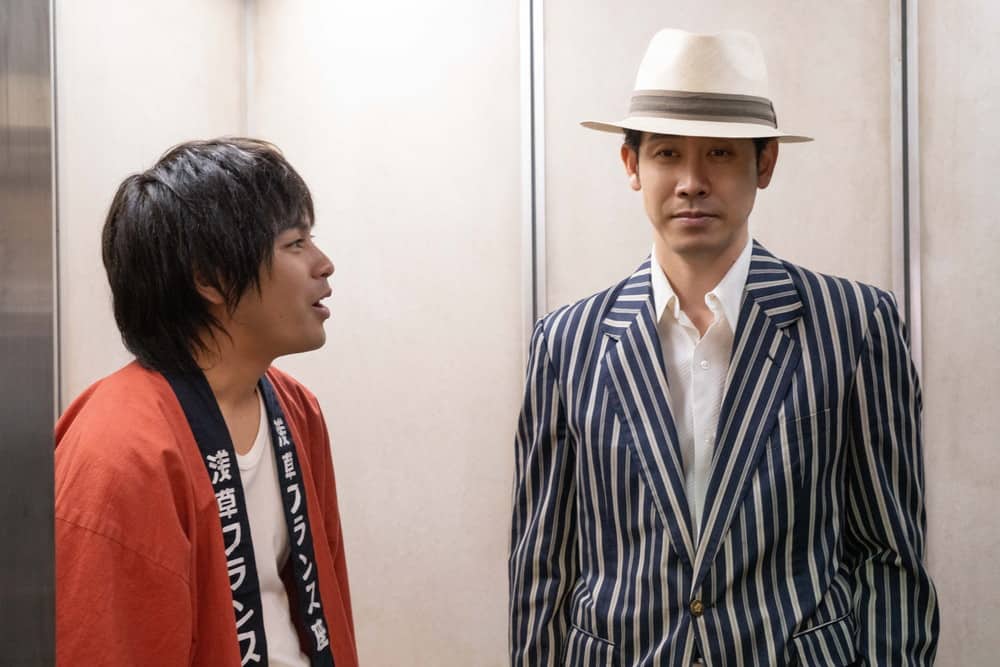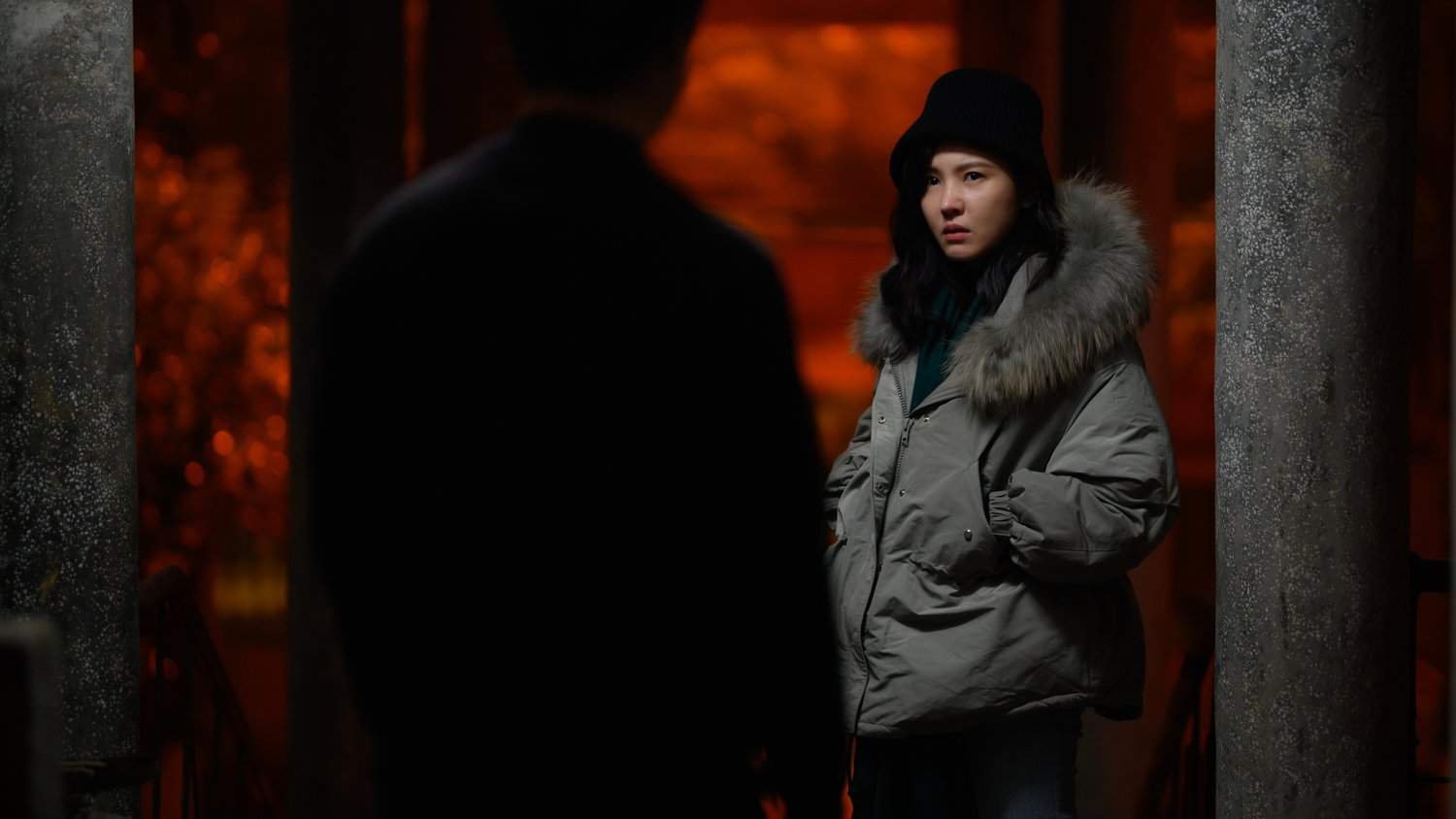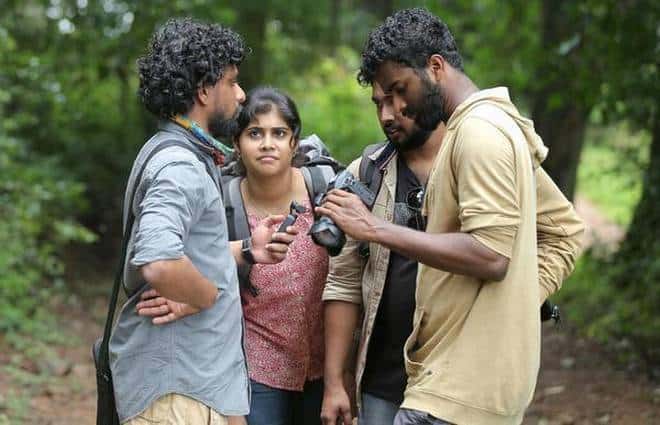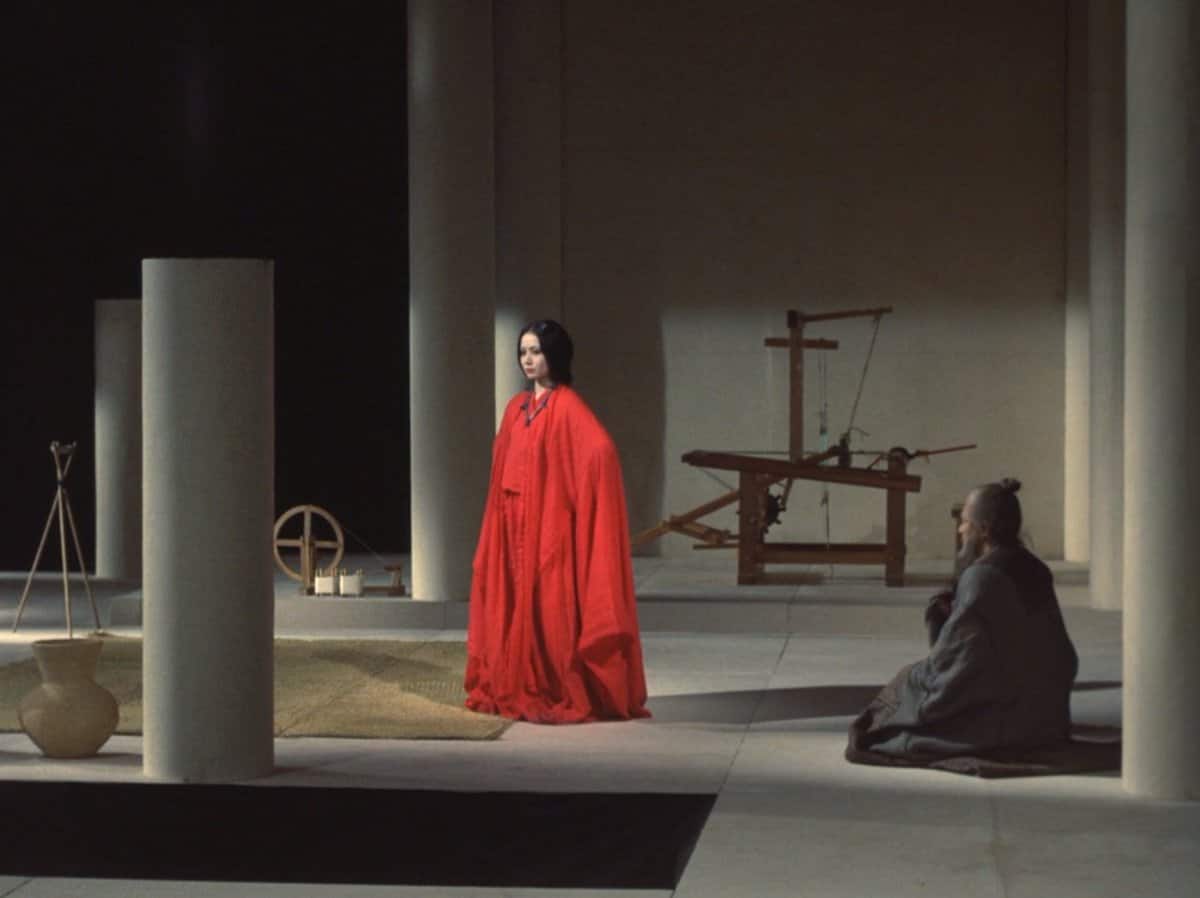The fact that Joko Anwar was going to become a great director became obvious from the beginning, with his debut incorporating all those elements that make his cinema unique, and particularly the extremely intelligent, pointy, and ironic sense of humor.
Joni works as a film-reel deliveryman in Jakarta, since, as Anwar eloquently explains, the distributors buy one copy of each film (made from 5-6 reels) for every two screening rooms, thus the need of people who take the reels from one cinema to another during the screenings. One day, while waiting for his next reel, he stumbles upon a gorgeous girl, who is waiting in line for a movie with her high-maintenance (to say the least) boyfriend, Otto. Joni cannot help but notice her, and the same applies to her, leading to a discussion that ends up with her promising to give him her name if he manages to deliver the reels in time. Joni rushes to achieve his goal, but his bike is stolen, the taxi-driver's wife gets in labor, a shooting crew decides to include him in their film without his consent, his bag is stolen, and meets a rather talkative boy and his sister, a member of a punk band.
Since the film features a lot of running, particularly from the protagonist, it is easy to make a connection with “Run Lola Run” or Sabu's films. However, in connection with the mostly punk (and in general quite fast music), I would say that the main inspiration behind the film's style was “Trainspotting” above anything else, both for the aforementioned elements, but also for its episodic nature that aims at highlighting a number of aspects of Indonesian society, although in this case, most of them revolve around the cinema industry. In that regard, the cinema audience's attitudes get their share, with Anwar separating them in 10 different classes everyone who attends film screenings must have come across at some point. The fact that film critics are included and mentioned in distinctly mocking fashion is a great sample of Anwar's self-deprecating humor, since he was also a critic before he became a director. The episode with the producer in the ambulance who suffers because he decided not to invest in a film that became a huge hit is another, as is the one with the film crew whinnying for never being in the spotlight, in contrast to the actors. Furthermore, the presence of Barry Prima in the role of the taxi driver gives a cult essence to the film, while the extremely self-righteous, extremely eloquent young boy named Toni is bound to make every spectator laugh.

These episodes come together quite nicely in the narrative, adding to the adventures of Joni, through the equally excellent editing of Yoga Krispratama and Anwar's direction, which, along with the almost constant music, allow the film to function as a music video quite frequently. The occasionally frantic pace also serves well in that regard, while Rahmat Syaiful's cinematography captures all the different settings with an approach that borders on surrealism, but remains quite down-to-earth. The scene with the lighters in the dark highlights both his and Anwar's directing effort.
Nicholas Saputra as Joni gives a great performance, particularly due to the way he reacts (or does not) on the extreme “events” he experiences. All the actors in the film play their roles with a suitable extremity, perhaps with the exception of Mariana Renata who plays the girl in the cinema in distinctly romantic fashion. However, I felt that the ones who steal the show (apart from Barry Prima that is) are Sujiwo Tejo as Adam Subandi, whose hyperbolic theatricality has him acting as an hilarious caricature and Dwiki Riza as the aforementioned Toni.
“Janji Joni” is a great film that thrives in context, intelligent irony, and overall entertainment and is definitely among the best in Joko Anwar's oeuvre.















